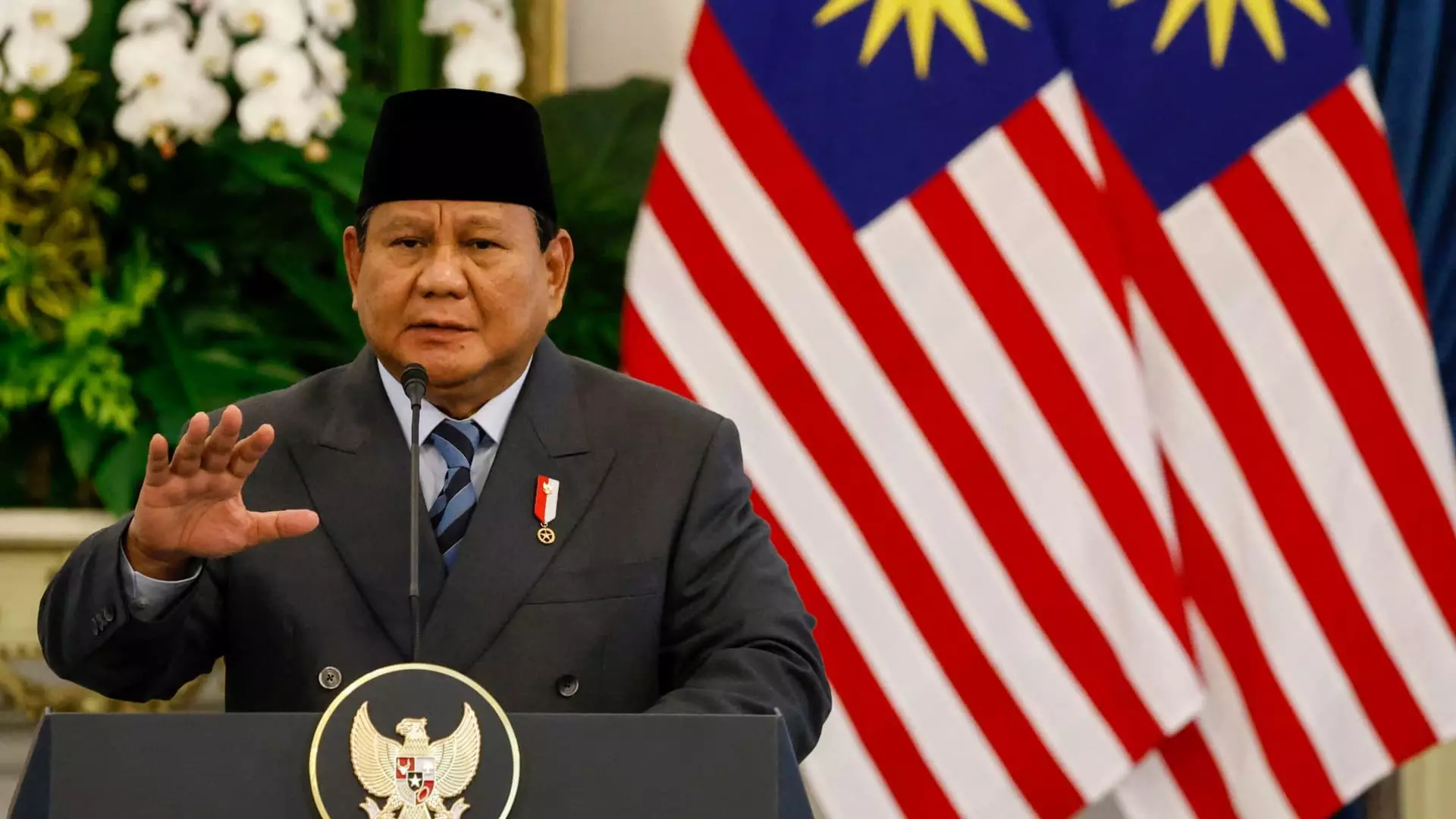The recent agreement between the United States and Indonesia appears, at first glance, to be a step toward fairer trade relations. However, a critical analysis reveals that this proclaimed “reciprocal trade” arrangement is riddled with inequalities crafted more for political optics than genuine economic fairness. While the White House heralds it as a triumph for American producers, the reality tells a story of excessive concessions that favor Indonesia’s strategic ambitions, not balanced mutual benefits. Underlying this deal is a pattern of superficial diplomacy that distracts from growing structural disparities and entrenched economic dependencies.
Much of the negotiation narrative emphasizes reduced tariffs—lowering Indonesia’s initial threat of 32% duties down to 19%. Yet, this modest reduction projects an illusion of reciprocity while perpetuating an imbalance of power. The U.S. remains comfortable at a 10% baseline tariff compared to Indonesia’s still notable 19%, a discrepancy that, in practice, limits American market access compared to Indonesia’s relatively easier entry. This imbalance is emblematic of a broader pattern: trade agreements often serve as strategic tools rather than genuine efforts at creating equitable exchanges.
Furthermore, the announcement’s focus on new commercial deals—massive aircraft and energy purchases—serves as a classic example of economic diplomacy’s double-edged sword. While these deals project a veneer of value addition, they also entrench dependence, with the United States subsidizing Indonesia’s growth by funneling billions into energy and aerospace sectors. Such arrangements risk embedding the very power asymmetries they claim to neutralize, positioning the U.S. as a financier rather than a partner.
Strategic Motivations Over Genuine Fairness
What stands out starkly in this narrative is the underlying strategic calculus behind these hollow “reciprocal” claims. The White House’s framing, emphasizing defending domestic production while expanding access, conveniently ignores how trade inequalities often undermine local industries at home. Critics argue that these deals are crafted not for fair trade’s sake but for geopolitical leverage, especially given Indonesia’s strategic importance in the Indo-Pacific region.
This agreement reveals a troubling tendency to prioritize short-term political gains—such as favorable press coverage, appearances of toughness on trade, and bolstering relations—over a long-term vision of equitable international economic cooperation. The focus on digital sector access and non-tariff barriers is, at best, a limited acknowledgment of the complex challenges faced by American firms in Indonesia, which are often overshadowed by broader geopolitical considerations.
Yet, it is crucial to recognize that such arrangements risk further entrenching economic dependencies that undermine genuine self-sufficiency. Instead of fostering balanced growth, these agreements could deepen structural flaws, encouraging American industries to become increasingly subordinate to Indonesia’s economic interests rather than collaborative partners.
Trade Agreements as Political Tools, Not Economic Solutions
In reality, trade agreements like this are as much about signaling strength as they are about actual economic benefit. For the West, especially under the banner of liberalism that champions fair and equitable trade, this deal exposes a troubling tendency: using economic leverage to secure geopolitical advantages under the guise of fairness. It’s a strategic game where the scales continually tip in favor of the bigger, more economically powerful player, often at the expense of genuine fairness.
Furthermore, the incomplete and vague nature of negotiations, with references to upcoming “finalization” and “domestic formalities,” suggests a level of ongoing diplomatic choreography rather than firm commitments. The absence of transparency on certain terms raises questions about how much of this deal is rooted in substantive economic reform and how much is simply marketing for political appeasement.
Ultimately, this agreement exemplifies the pitfalls of relying on vague notions of reciprocity and mutual benefit when real power dynamics are skewed. It underscores the necessity for a more critical, center-leaning liberal perspective on international trade—one that advocates for fairer, more transparent arrangements that prioritize sustainable development and mutual respect over strategic dominance or superficial gains.


Leave a Reply